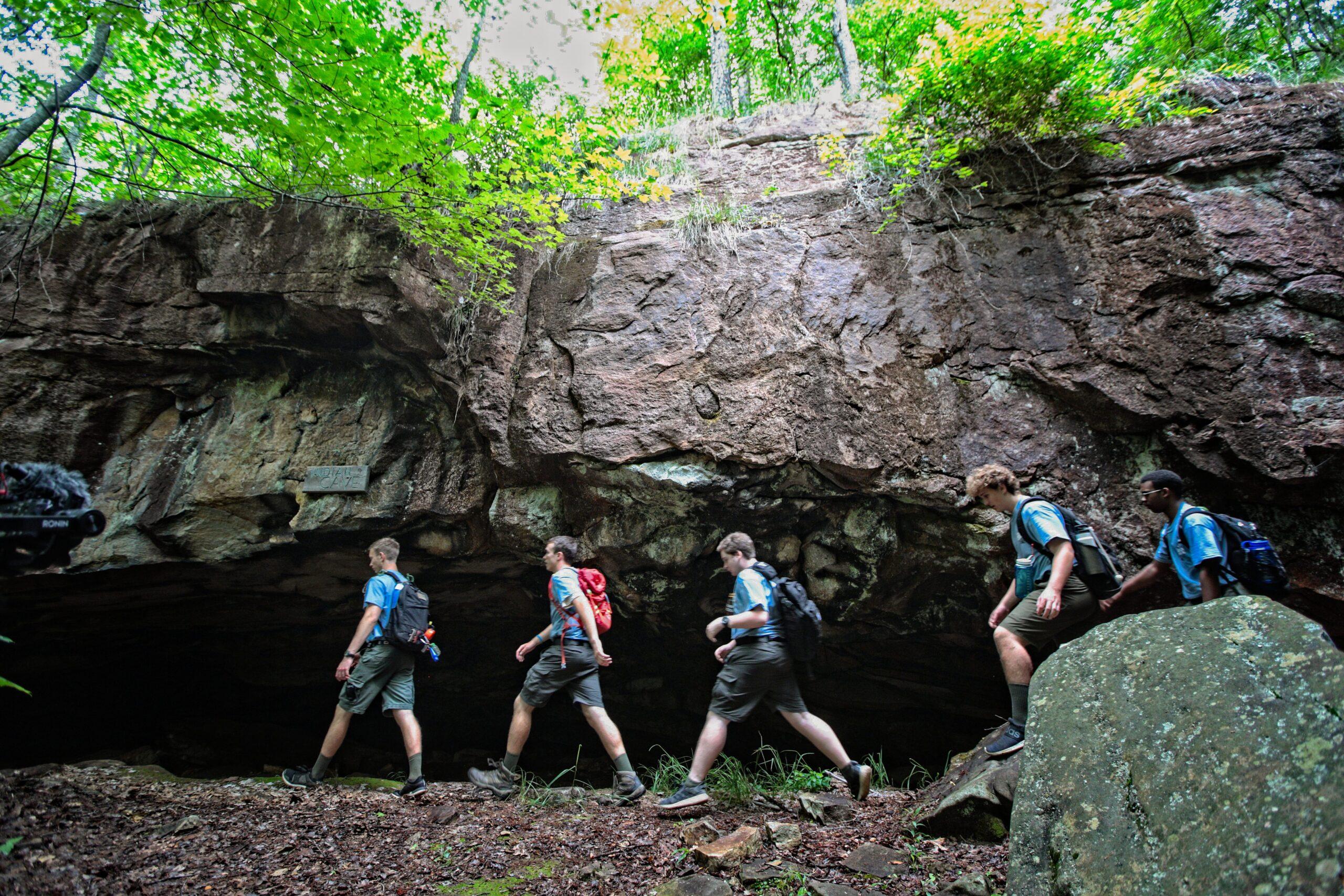
One of the core principles of Scouting is that the YOUTH, not the Adults, are responsible for leading the Troop. Adult leaders are there to guide and mentor the youth, ensure that the Troop adheres to the requirements of the Scouting program, and ensure the safety of our members during Scouting activities.
The Youth-led Troop means that it is our Scouts responsibility to plan and run our Troop meetings and events. This is accomplished through several mechanisms:
- Scout Leadership Structure: We’ll cover this in more detail in another lesson, but Scouts in the Troop are elected to Troop positions that include additional responsibilities for running portions of the Troop or Patrol. All Scouts must fill a leadership position for a period of time to earn later ranks (Star, Life, and Eagle) and the structure allows Scouts to develop their leadership skills in lower stakes situations within the Troop.
- Annual Planning Conference: Once a year (typically in September), the Troop conducts our Annual planning conference where members brainstorm activities they’d like to participate in for the upcoming calendar year. The Troop then discusses the activities and votes which to include in our calendar.
- Monthly Patrol Leaders Councils: The third Tuesday of every month is our Troop’s Patrol Leaders Council (PLC). The PLC is the Scout’s opportunity to plan what to do in the next month’s activities and assign responsibility to a Scout or Adult to help plan the activity. All Scouts in a Troop or Patrol Leadership position are required to attend, but all members are encouraged to attend to learn about the PLC process, provide input on upcoming activities, and stay up-to-date on Troop plans.
Cub Scout Comparison
The Youth-led Troop concepts is often one of the most challenging changes for Scouts and adults joining from the Cub Scout program. In Cub Scouts, Adult leaders decide on what events / activities the Den or Pack will do at a meeting, plan those activities, and ultimately run the meeting.
In a Scouts BSA Troop, you’ll find our youth leaders leading the meetings, running activities (or delegating those activities to another youth or adult leader), and making important decisions about how the activities are run. The Scoutmaster and other leaders will make suggestions to our Scout leaders to ensure the health, safety, and enjoyment of the Scouts.
SUGGESTIONS FOR ADULTS
The transition to the Youth-led Troop is often a challenge for our parents and guardians as well. Sometimes the processes put in place can seem off putting. For example:
- Scouts are encouraged by our adult leaders to escalate issues or problems up the Scout chain of command rather than going to adults. Adult Leaders will often ask a Scout if they have asked the Patrol Leader, Senior Patrol Leader, or other youth-leader a question before it is escalated to the adults. While this can seem like the Adult leader is disinterested or deflecting the question, it is an important part of instilling leadership skills in our Youth.
- Scouts should present activity ideas to the Troop during the annual planning conference or PLC meetings. If you have an idea for an event or meeting activity, suggest it to your Scout to suggest at one of these meetings. This is our Scouts’ Troop; they should decide what we do.
Anyone seeing issues of health and safety, including youth protection issues, should IMMEDIATELY escalate those issues to the Scoutmaster, Committee Chair, or any registered adult. These issues do not need to go through the Scout chain of command.
